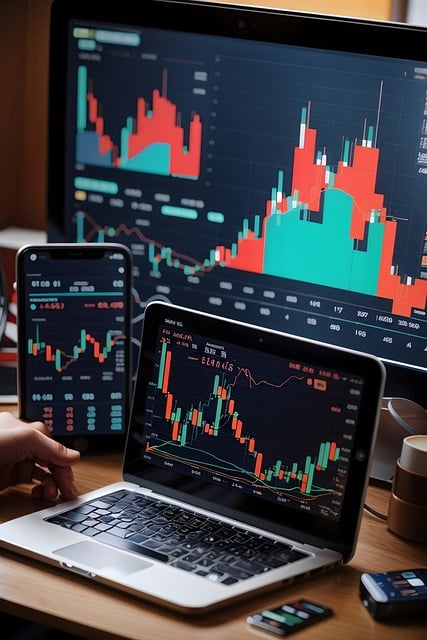The Evolution and Impact of AI Trading Software
In today's fast-paced financial market, the integration of artificial intelligence (AI) into trading strategies has transformed how investors approach trading. AI trading software, powered by machine learning algorithms and data analysis techniques, aims to optimize trading decisions and enhance profitability while minimizing risk. In this article, we will explore the intricacies of AI trading software, its advantages, challenges, and the future outlook in the world of finance.

Understanding AI Trading Software
AI trading software refers to computer programs that use algorithms and AI techniques to analyze market data, identify trading opportunities, and execute trades. These programs can process vast amounts of data at lightning speed, making them superior to human traders in many respects. The fundamental goal of AI trading software is to leverage technology to improve trading accuracy and efficiency.
What Does AI Trading Software Do?
At its core, AI trading software performs the following functions:
- Data Analysis: It processes historical data and real-time market information to identify patterns and trends.
- Predictive Modeling: AI algorithms predict market movements based on statistical analysis and machine learning techniques.
- Risk Management: The software assesses risk exposure and implements strategies to mitigate potential losses.
- Trade Execution: It automates the trading process, ensuring trades are executed at optimal prices without human delay.
The Role of Machine Learning in Trading
Machine learning is a subset of AI that enables trading software to learn from data and improve its predictions over time. Unlike traditional programming methods, where rules are explicitly coded, machine learning algorithms adapt based on new data inputs. This means that the more the software is exposed to different scenarios, the better it becomes at identifying successful trades.
In my opinion, this is one of the most fascinating aspects of AI trading software; its capacity to evolve and improve itself offers a significant competitive advantage in the volatility of the markets.
Advantages of AI Trading Software
1. Speed and Efficiency
One of the most prominent advantages of AI trading software is speed. Markets can change within fractions of a second, and human traders cannot keep up with such rapid movements. AI algorithms can analyze multiple data points simultaneously and execute trades much faster than any human trader could dream of. As someone who appreciates the nuances of trading, I find this efficiency crucial in capitalizing on fleeting opportunities.
2. Data-Driven Decision Making
AI trading software relies on quantitative data to make informed decisions. By removing the emotional aspect of trading, AI can mitigate irrational decision-making that often plagues human traders. In volatile markets, having a rational, data-driven approach can be the difference between profit and loss.
3. Customization and Personalization
The best AI trading software can be tailored to match individual trading strategies and risk profiles. Whether one is a risk-averse investor or an aggressive day trader, AI programs can adapt and optimize trading parameters to suit specific needs. This level of personalization not only increases satisfaction but can also significantly improve trading outcomes.
Challenges and Limitations
1. Market Volatility
While AI trading software excels in analyzing data, it can sometimes struggle with unpredictable market conditions. For instance, sudden geopolitical events or economic crises can create market volatility that algorithms might not have been programmed to handle. In such cases, the reliance on historical data can lead to poor trading decisions.
2. Overfitting
Overfitting occurs when a model is too complex and is trained too closely on historical data, leading to a failure in predicting future outcomes. This is a common pitfall in machine learning that can severely impact trading performance. As an enthusiast of algorithmic trading, I believe this aspect must be carefully managed to maximize efficacy.
3. Lack of Regulation
The realm of AI trading is still relatively new and often lacks stringent regulatory frameworks. Without proper oversight, there are concerns about market manipulation and unethical trading practices. This is a critical issue I believe needs addressing as AI trading becomes more mainstream.

Future Outlook
The Rise of Autonomous Trading Bots
As AI technology matures, we can expect an increase in the number of autonomous trading bots that operate without human intervention. While this prospect may be exciting, it raises questions about the ethical implications and potential job losses in the trading industry. In my view, a balance must be struck between leveraging technology and preserving the integrity of the financial markets.
Collaboration Between Humans and AI
Despite the incredible capabilities of AI, I firmly believe that human insight will remain invaluable in trading. The best outcomes will likely arise from a collaboration between skilled traders and advanced AI systems, where humans provide contextual understanding while algorithms optimize the execution of trades.
Conclusion
AI trading software has undeniably revolutionized how trading is conducted in the financial markets. It offers unparalleled speed, efficiency, and data-driven decision-making that can lead to more informed trade execution. However, challenges like market volatility, overfitting, and regulatory concerns are critical factors that must be navigated as the technology continues to evolve.
Ultimately, as we advance into an era dominated by AI and machine learning, the symbiotic relationship between human traders and intelligent algorithms will define the future of trading. Embracing AI's potential while remaining vigilant about its limitations will be the key to unlocking profitable opportunities and achieving sustainable growth in the ever-changing financial landscape.